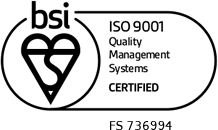Research
We provide bespoke research services to match our clients requirements from state of the art reviews to Prototype tool development.
Collaborative Development
Materials discovery is born from a union between theory and experiment. Our team can provide access to state of the art materials modelling and simulation tools. Materials properties, performance and characterisation may be accessed through our extensive range of metrology tools either in house or through our strategic partnerships.
Please get in contact with us for any further information or a chance to chat through your needs.
Analysis
Not only data analysis through bespoke computational and software development but also materials and systems analysis to work out the best solution in terms of materials type and chemistry and technology types.
Our own research programmes take huge datasets from X-Ray synchrotron data files to extract real materials understanding in complex in-situ in-operando environments.
Testing
Our testing and characterisation facilities are extensive and Electrosciences has access to a very large set of tools and measurement apparatus for advanced functional materials via our strategic partners.
The list is extensive and so please do contact us for any further information. Remember, one of the company’s strengths is to design and prototype new apparatus which is either not commercially available or extra novelty and innovation is required.



